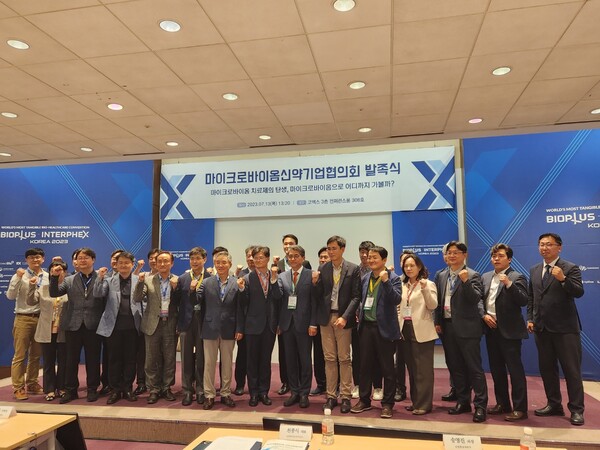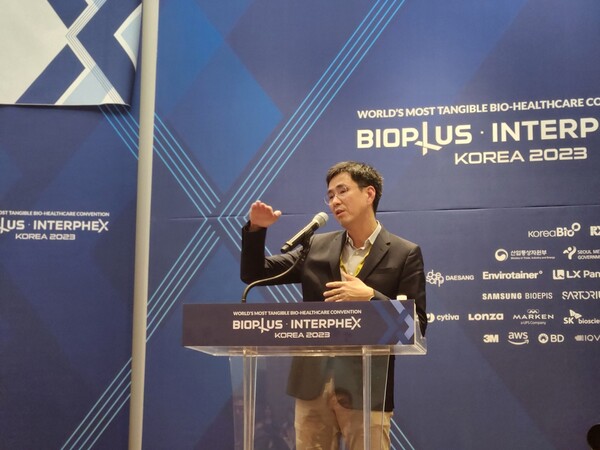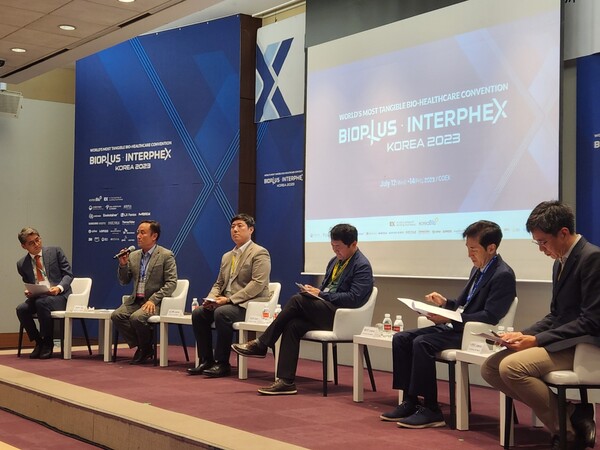Making all out efforts to become a leader in the microbiome business, Korea officially launched the Microbiome New Drug Business Council on Thursday to help establish Korea’s competitiveness in the global market.

The council's launch is expected to promote various projects, such as building a global network and inducing win-win cooperation among the council members to create a foundation for the industrialization of new drugs and seek various directions for policy improvement.
The council is comprised of 27 members headed by active members of Korea’s microbiome community.
CJ Bioscience was appointed as the chair, KoBioLabs, the head of the steering committee chair, and five steering committee members including KoBioLab, Genome & Company, Immunobiome, HEM Pharma and Chong Kun Dang Bio.
The term of office will be held for two years.
Harvard Medical School Professor Huh Jun of Immunology, who leads a lab that studies how maternal inflammation and gut microbiota lead to neurodevelopmental disorders and primed immune responses in offspring, shared his vision to make Korea a leader in the microbiome field.
“Right now, there is a lack of understanding of the mechanism of action of how microbiome products are developed so we need to reveal this blackbox to attract investments,” said Professor Huh.
For this to happen, he said that the government’s support would be key to overcome the trough of illusionment in the domestic microbiome Gartner Hype cycle.
Specifically, he shared that there is still a need for a better understanding of the host responses through clinical correlates in humans via collaborations with the so-called “Big Five” hospitals as well as functional studies in preclinical models.

Furthermore, he highlighted a need for Korea to establish a microbiome bank in Korea consisting of live bacteria so that functional tests can be conducted to better understand host interactions.
In turn, this biobank could facilitate better microbiome analyses and the development of a precision taxonomy platform and microbiome drug discovery platforms for building a microorganism library.
“If we can build one of the largest biobanks, Korea’s microbiome industry will be able to gain recognition globally and draw researchers into Korea for this field,” said Huh.
Huh emphasized the need to secure top talents in computer science, database and algorithm development to facilitate big data genome sequencing of microbiome.
The panelist session included ImmunoBiome CEO Im Sin-hyeog , HEM Pharma CEO Ji Yo-sep, Genome & Company Ceo Pae Ji-soo, KoBioLabs Executive Vice President Lee Han-seung and Professor Huh.
All of the pannelists idenitified the mechanism of action (MOA) as a key factor that needed more research to improve the market for live biotherpaeutics (LBPs).
HEM Pharma CEO also identified the need to develop a massive database to help elucidate the source of interferences in microbiome studies.

While Genome&Company CEO Pae Ji-soo acknowledged that elucidating the MOA was important, he explained that it was a bit risky to depend solely on the MOA but instead suggested focusing on developing accurate human proof of concept studies and later elucidating the MOA.
Related articles
- Cytiva report reveals Korea’s strengths in bio policies but downfall in R&D
- 'FDA Project Optimus set to affect all cancer drug developers, not just in the U.S.'
- Bioplus-Interphex 2023: Experts highlight importance of startup-pharma collabo
- Institut Pasteur Korea launches 1st global infectious disease specimen resource bank
- Genome&Company, HEM Pharma strengthen ties to accelerate microbiome drug discovery

